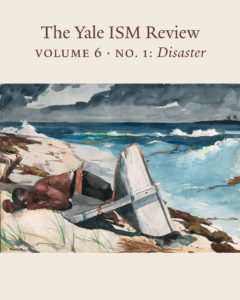Tony Alonso
In the documentary Alive Inside: A Story of Music and Memory, filmmaker Michael Rossato-Bennett follows social workers who use music to unlock memory and restore a sense of self in persons afflicted with dementia and Alzheimer’s disease.
Among the many people whose stories he chronicles in the film is Henry, a ninety-four-year-old man living with dementia. We first encounter Henry hunched over in his chair as if he is sleeping, unresponsive to questions from his caregiver and unable to recognize even his own daughter when she enters the room. He struggles so hard to remember her and say her name, but he just cannot place her.
A few moments later, his caregiver carefully places headphones on Henry’s ears and presses play on the iPod to which they are attached, starting one of Henry’s favorite songs, “Goin’ up Yonder,” an old Gospel tune he sang in church when he was young.
The music begins and instantly everything changes. No longer hunched over, Henry is now upright in his chair. No longer tightly closed, his eyes are now wide open, darting back and forth. Singing, smiling, riffing, moving to the music, remembering every word and nuance, Henry wakes up.
Even when the song ends and the caretaker removes the headphones, Henry’s newfound alertness continues as the therapist asks him a series of questions. Henry, what does music do to you? “It gives me a feeling of love. I feel the band of love, of dreams. The Lord came to me, made me holy, I’m a holy man. He gave me these sounds.”
When I saw Henry change before my eyes in the film, I heard in a new way one of the most repeated commands in scripture—the command to sing:
“Sing to one another with psalms, hymns and spiritual songs.”
“Sing and make music from the heart to your Lord.”
“In the assembly, sing God’s praises.”
“Sing to God, tell of God’s wonderful acts.”
“Sing to the Lord a new song.”
I think we glimpse in Henry’s eyes why God so insists on our song. When all has passed away, when we cannot even recognize a child or a partner seated in front of us, we can still recognize a song. Music does what even the most coveted prescription drug and the most cutting-edge clinical trial cannot: it revives a part of us that to others seems dead. It floods us with memories from the past that reawaken us in the present.
Here in the eyes of Henry is vivid confirmation of the ways that shared music-making helps the human body remember, long after it seems all has been forgotten. “Anyone who has worked with Alzheimer’s patients knows that often the last way of bringing a person a present is to sing for them (and with them) songs from their childhood,” writes Don Saliers of his own lived experience. “This itself is a kind of metaphor for the deeper power of music to encode life, and to make it present—even in the face of cognitive diminishment.”[1]
Shared music-making has the capacity to form the deepest contours of our communal memory. This is perhaps why the apostle Paul encouraged early Christians to let the word of Christ dwell in them richly by singing psalms, hymns, and spiritual songs to God (Colossians 3:16). Paul knew what any of us who can recall all the lyrics to our favorite songs know. He knew what all of us who can’t get that advertising jingle out of our head know. He knew what Henry knows: music anchors language in our hearts even as it signals the limits of language alone.
This remarkable connection between music and memory has pushed me beyond tired debates about what style of music we should sing, beyond narrow arguments about whether we should use organs, guitars, praise bands, or no instruments at all. It has pushed me beyond these questions because it is helping me to realize that more is required of those of us charged with the responsibility of shaping communal song than policing narrow boundaries around the sounds through which God is made audible to God’s people, boundaries that are often predetermined by our own aesthetic biases and musical training.
While music spills into every area of our lives, our churches are places that house the practice of singing in a privileged way. And the power of music to encode things even when all else has fallen away confronts me with a deeper sense of the weight of what we do when we invite people to join in song. It reminds me that the songs I choose and the songs I write often remain deep within people long after they’re sung. It reminds me that singing is the embodied memory of the church.
In this moment of overlapping world crises, being a steward of the musical memory of a community takes on new urgency.
The present pandemic lays bare the extent to which we as a church have nurtured musical memories that might provide a sufficiently expansive theological vocabulary to respond to the profound traumas we now face. For all of the creative and thoughtful ways in which worship leaders have re-imagined the shape of Christian worship in a virtual space, one of the practices that so far cannot be reproduced in any meaningful way is the practice of singing together. And so the musical fragments we laid (or failed to lay) in the hearts of our communities before our separation from one another are the theological fragments our communities did (or did not) take with them into this period of isolation.
As we await the time when it is safe for us to gather and sing together once again, I find myself taking time to contemplate the theological gaps in my own repertoire, and longing for a richer grammar of lament, rage, and anguish, one that can bear the weight of the communal trauma we are currently experiencing. I find myself craving musical memories not only of hymns that tell us not to be afraid or that God is good, but also musical memories that can hold our fear and our woundedness as holy and true.
The intensifying white nationalism and the resurgence of overt antiblack racism in the United States has invited distinct but related questions about whose musical memories we anchor in the hearts of our communities. Discerning music for public worship—whether as a composer or as a publisher or as a church music director—is an act of profound power. Too often we leave that power unexamined. And as in many things in Western culture, that act of power is often centered on Western assumptions, aesthetics, and ideals that quietly become normative.
Whether we realize it or not, whether we acknowledge it or not, our hymns are filtered through the particularity of the experiences and artistry of their author. And so the fine print in our hymnals, worship bulletins, and music planning sheets with the names of the composers that comprise our core repertoire testify to whose voices, whose memories we continue to center. Our hymns also tell us whose voices and whose memories are absent. And so I find myself newly attentive to the ways in which these seemingly ephemeral artifacts reveal whose communal memory matters, and whose does not.
Embracing the growing body of hymnody centered on justice and inclusion predominantly written by white composers, for example, unaccompanied by an examination of the relative absence of Black, Latinx, Indigenous, and Asian composers, risks betraying the deepest impulses of the very justice and inclusion of which we sing. It reifies the very logics we want to resist.
Confronting what memories we admit or what memories we deny in our repertoires is not where our work must end. And the work each of us must do will take a different shape, depending on our own proximity to privilege and the particularities of our own context. But it is a worthy place to begin.
Long before our present struggles, Pope Francis spoke more presciently than he could have anticipated about the need for the church to be what he calls a field hospital after battle, a church concerned with nearness and proximity, a church centered on healing wounds.[2] Music ministers are often on the frontlines of that field hospital: accompanying the grieving, celebrating with the marrying, and simply marking the sacred moments of daily life in song.
As we continue to confront the deep wounds of the world, I invite us to think of Henry: what you and I and the people with whom we work and pray remember about God even when all else has passed away is often in our hands. Our musical vocabulary shapes memories and anchors fragments of faith over a lifetime. And so if the words and melodies you and I anchor on people’s hearts are ones that will accompany people to their graves, we must ask ourselves: What should those words and notes be and why? What vocabulary do we offer them and about what do we remain silent? Whose musical memories do we center and whose do we erase? What might we need to give up to make space for what is not yet?
 Antonio (Tony) Alonso is a Cuban-American Roman Catholic theologian and a Latin Grammy-nominated composer whose work responds to the diverse needs of the contemporary church. His first monograph, Commodified Communion: Eucharist, Consumer Culture, and the Practice of Everyday Life (Fordham University Press, 2021) offers a theological account of contemporary consumerism and its relationship to the Eucharist. Tony is Assistant Professor of Theology and Culture at Candler School of Theology at Emory University where he also serves as its inaugural Director of Catholic Studies. Website: www.tonyalonso.com
Antonio (Tony) Alonso is a Cuban-American Roman Catholic theologian and a Latin Grammy-nominated composer whose work responds to the diverse needs of the contemporary church. His first monograph, Commodified Communion: Eucharist, Consumer Culture, and the Practice of Everyday Life (Fordham University Press, 2021) offers a theological account of contemporary consumerism and its relationship to the Eucharist. Tony is Assistant Professor of Theology and Culture at Candler School of Theology at Emory University where he also serves as its inaugural Director of Catholic Studies. Website: www.tonyalonso.com
[1] Don E. Saliers, Music and Theology (Nashville, TN: Abingdon Press, 2007). 6.
[2] Antonio Spadardo, “A Big Heart Open to God,” America Magazine, September 30, 2013, http://americamagazine.org/pope-interview.
